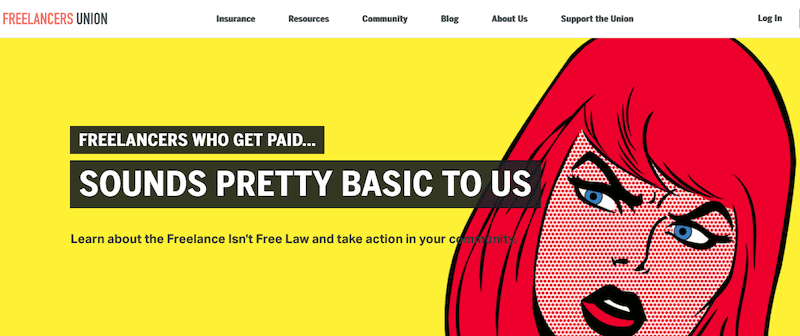For all you freelancers tired of chasing down the money you’re owed, it’s time to up your contract game with late fees.
There’s nothing quite like the satisfaction and related exultation of wrapping a big project and submitting an invoice to the client. (Depending on the client, you can almost hear ABBA’s “Money, Money, Money” playing in your head.)
When said client doesn’t send payment on time, however, when that big check that you were counting is late, it can ruin everything and leave you wondering what recourses are available for you to chase down your money and get paid.
The grim reality of doing business today is there aren’t many protections for self-employed content creators and entrepreneurs against clients delaying payment. In response, a growing number of freelancers and small businesses have fought back in recent years by insisting upon extra contractual protections from the very beginning.
Many of these protections take the form of fees for late payment — penalties for client tardiness.
And according to Wudan Yan, a Seattle-based independent journalist and a podcast host and producer, these fees can provide peace of mind. Yan wrote a now-famous blog post about late fees in 2018.
“It’s hard to get clients to agree to late-fee clauses, but when they do they can help tremendously,” she says. “It’s like an insurance policy — if you have to deal with payment coming in late, at least you’re getting compensated for it.”

If anybody knows about late-fee clauses, it’s Yan — she has been championing this practice for the better part of the last three years. Her late-fee clauses include a 10-percent penalty for every month late a payment might be. The fees compound every month they’re late: If the original invoice is for $1,000, the late fee for first month would be $100, while the late fee for the second month would be $110.
Yan, co-producer of a podcast called The Writers’ Co-op, says she also pushes to receive payment within 30 days of invoice submission, known in business circles as net 30.
While she hasn’t had to seek many late fees, the risk of incurring them prompts clients to pay on time.
“When I file an invoice, I basically have a little warning that says like, this must be paid out within 30 days, if not, I will charge a 10-percent late fee compounded monthly,” she says. “The strategy I use has been pretty successful.”
Fellow freelancer Danna Lorch relies on contractual language as defense against late payments, too. Following an online course she took with Yan and The Writers’ Co-op co-producer Jenni Gritters, Lorch received a contract template that specifies net 30 payment terms and late fees of 10 percent. She uses that contract now whenever possible — including when she does work for friends.
Lorch, who is based in the Boston area, says having these protections in contracts are the best way to protect oneself against late or default payments.
“I always have a contract template ready,” she says. “As soon as we’ve agreed on a fee and deadline, I say to someone, ‘Do you have a contract that you like to use? If not, I’ll send one over to you.’ It’s part of my process, and it makes everything easier.”
Lorch noted she has not had to chase down late payments since she adopted this strategy.
Depending on where you live, there may be other protections in place. Some municipalities have stepped into the fray and are requiring companies to build late fees into their contracts. For instance, if you’re a freelancer in New York City (or you’re working with a company based in New York City), protections are covered under the Freelance Isn’t Free Act, which went into effect in 2017. That law stipulates freelancers can recover up to double the invoiced amount.

Of course, if a client fails to fulfill the terms of a contract, filing a small-claims lawsuit is always a possibility, too. This is an option for all contractual engagements of $500 or more.
In these cases, the plaintiff — the person filing the lawsuit — must file in the county where the client does business. The upside: Being served a summons usually scares clients into paying outstanding invoices. Downside: Even if the court rules in your favor, there’s no guarantee you’ll get paid (but it does mean you can write off the loss on your taxes).
Both Yan and Lorch say contracts with clear payment terms and late fees protect against this scenario.
“The more you put into the contract, the fewer questions there are when things go wrong,” Lorch says. “[It’s always] better to be safe than sorry.”




